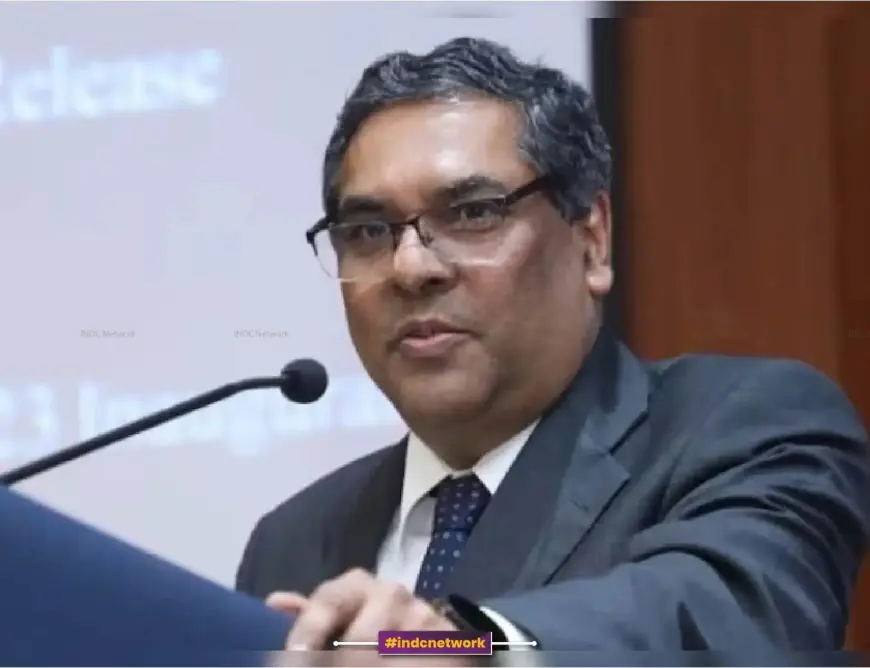Justice Sanjiv Khanna: From legacy to legacy, will become the 51st Chief Justice of India on November 10
Justice Sanjiv Khanna will take oath as India’s 51st Chief Justice on November 11. Known for a legacy rooted in law, he follows the footsteps of his father and uncle, both of whom made notable contributions to Indian judiciary. From early legal practices to landmark judgments in the Supreme Court, Khanna’s career is a mix of controversy, integrity, and significant judgments. He is set to continue the tradition of an independent judiciary as he ascends to the role of Chief Justice, succeeding DY Chandrachud.

INDC Network : New Delhi : Justice Sanjiv Khanna: From Legacy to Legacy, Journey to Becoming India's 51st Chief Justice
The journey from a family rooted in the judiciary to the 51st Chief Justice of India
Tomorrow, on 11 November, Justice Sanjiv Khanna will be sworn in as the 51st Chief Justice of India. He comes from a distinguished judicial family, whose father Devraj Khanna was a judge of the Delhi High Court, and his uncle Hansraj Khanna was a Supreme Court judge. Hansraj Khanna's decision to step down as Chief Justice despite his seniority and opposition to the policies of the then Prime Minister Indira Gandhi during the Emergency was a bold step that reflected the independent character of the Indian judiciary. This legacy has deeply influenced Sanjiv Khanna's career.
Sanjeev Khanna: Journey from advocacy to Supreme Court
Sanjiv Khanna did his LLB from Delhi University's Campus Law Centre in 1983 and started his career at Tis Hazari Court. He also became a standing counsel for the Delhi government's income tax department and civil cases, which enhanced his administrative and legal acumen. In 2005, he was appointed a judge of the Delhi High Court, where he served for 13 years. His promotion to the Supreme Court was recommended by then CJI Ranjan Gogoi in 2019, while Khanna was 33rd in the seniority ranking.
Elevation to the Supreme Court and controversy
When Justice Khanna's name was proposed for the Supreme Court, 32 other judges were ignored in terms of seniority, on which Delhi High Court Chief Justice Kailash Gambhir wrote a letter to President Ram Nath Kovind. Despite this, the President approved the appointment of Justice Khanna, and on 18 January 2019, he took charge as a Supreme Court judge.
Famous cases and landmark judgements
During his six years in the Supreme Court, Justice Khanna attended nearly 450 judgement benches and wrote 115 judgements himself. On the issue of gay marriage, he recused himself due to personal reasons. In July this year, he granted bail to Delhi Chief Minister Arvind Kejriwal in a case. Recently, his decision on the minority status of Aligarh Muslim University (AMU) on November 8 also made headlines, in which he supported it.
Justice Khanna's division bench dismissed the petition seeking verification of VVPAT slips after voting, saying there was no flaw in the current system of vote counting. The five-judge bench headed by him declared the electoral bond scheme of secret donations unconstitutional, calling it against the voters' right to information.
Stance on Article 370
The decision to remove Article 370 from Jammu and Kashmir in 2023 was challenged. A bench of Justice Khanna, CJI Chandrachud and three other judges upheld it, giving judicial validation to this historic decision of the government.
Judicial independence and right to information
In a case related to the Right to Information in 2019, Justice Khanna emphasized on balancing judicial independence with the right to information. He said that the office of the Chief Justice can also be subject to the Right to Education, so that transparency is maintained.
Collegium System and Tradition
In India, the CJI is appointed through the collegium system, which includes the most senior judges of the Supreme Court. Under this, the central government makes the appointment by accepting the recommendations of the Supreme Court. Although there is no constitutional law to determine the authority between the Center and the Supreme Court in this process, but this tradition has been followed. In 2015, NJAC (National Judicial Appointments Commission) was formed to change this, but the Supreme Court declared it unconstitutional.
Justice Sanjiv Khanna's taking over as CJI is not just his personal achievement but the continuation of a legacy that has given the Indian judiciary an example of sovereignty and courage. It will be interesting to see how he will contribute to further strengthening India's judicial system in this prestigious role.









